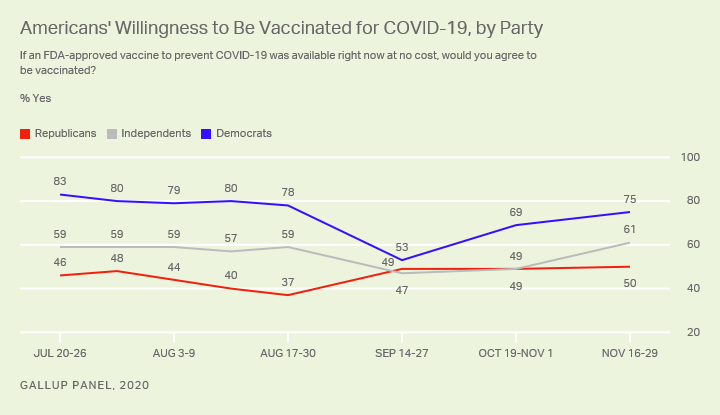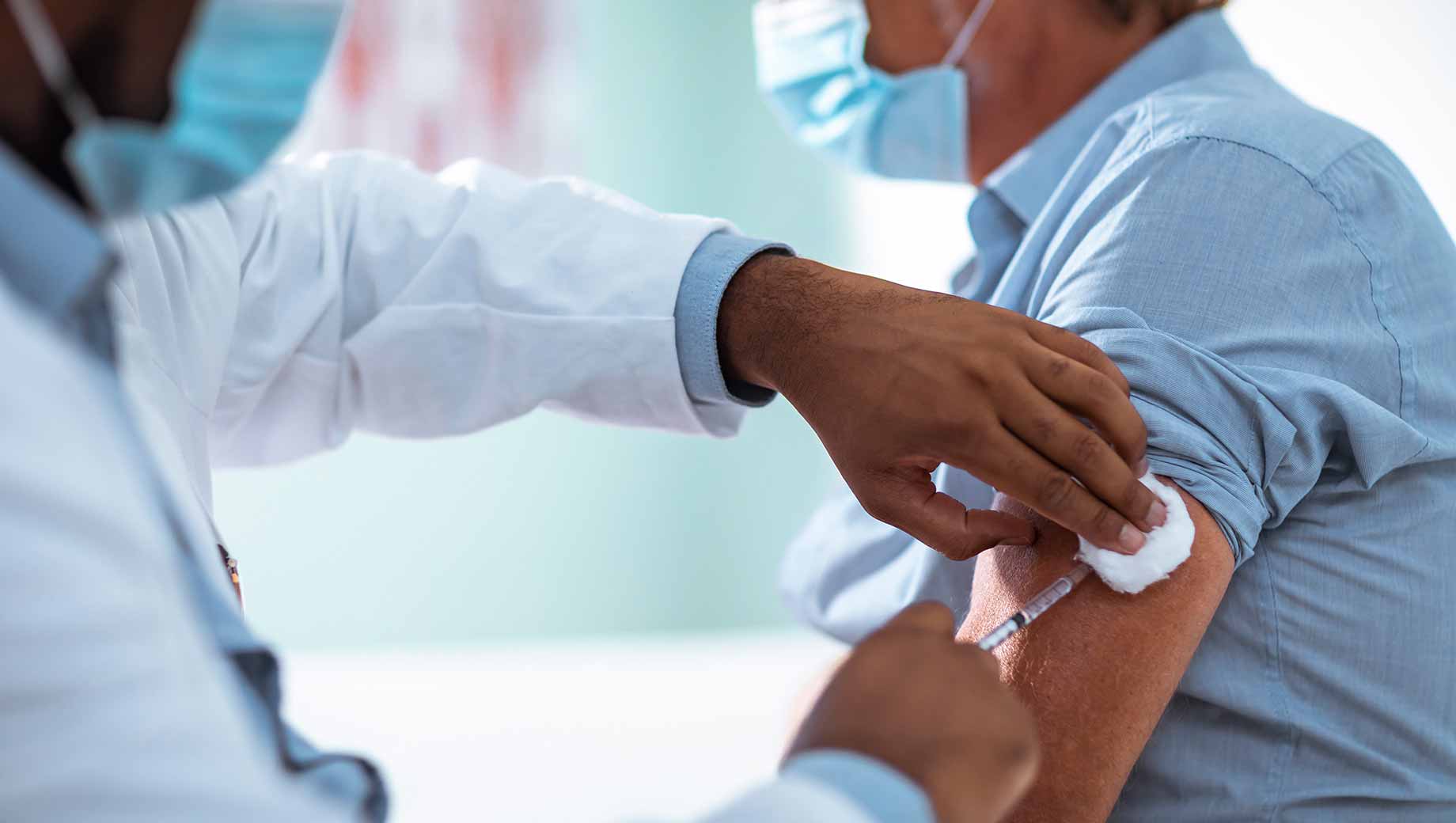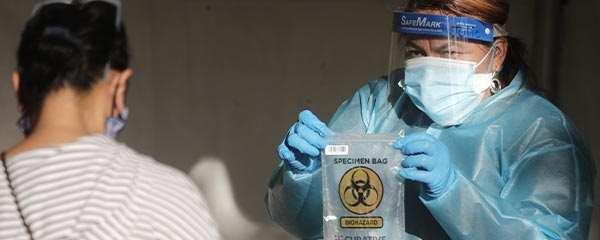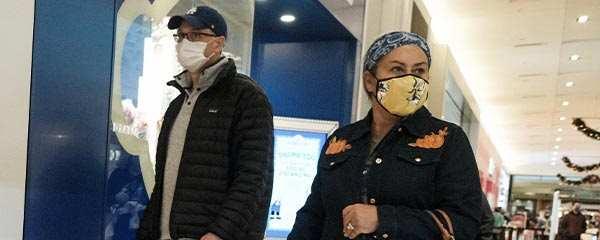Story Highlights
- 63% in U.S. would be willing to receive FDA-approved COVID-19 vaccine
- Current figure is an increase from 50% in September and 58% in October
- Republicans, non-White adults, 45- to 64-year-olds least willing
WASHINGTON, D.C. -- With two COVID-19 vaccines now in the final stages of approval for use in the U.S., 63% of Americans say they are willing to be immunized against the disease. The public's willingness to receive a COVID-19 vaccination approved by the Food and Drug Administration (FDA) has nearly rebounded to the previous high of 66% after hitting a 50% low point in September.

Line graph. Americans' willingness to receive a COVID-19 vaccination that has been approved by the FDA, trend since late July. Currently, 63% say they are willing to receive one, near the 66% high from July and much higher than the 50% reading in September.
These latest findings are from the probability-based online Gallup Panel survey conducted Nov. 16-29, which began a week after the announcement by Pfizer and BioNTech that their COVID-19 vaccine had proved better than 90% effective in Phase 3 clinical trials. Since then, Moderna has made a similar announcement, and both companies have applied for emergency use authorization from the FDA for their vaccines. The FDA will hold hearings in the coming weeks to decide whether to grant authorization to both companies. If approved, some Americans could begin to receive vaccines before the end of the year.
Gallup first asked Americans in July about their likelihood to submit to being vaccinated, and at least three in five said they would do so. That proportion persisted in August. However, in mid-to late September, the public's readiness dropped. This sharp decline followed an announcement by AstraZeneca that its vaccine trials were halted because of adverse participant reactions. Additionally, statements by President Donald Trump and Democratic vice presidential nominee Kamala Harris may have affected Americans' views. Trump said in early September that a vaccine could be available before Election Day, raising questions about pressure being put on the FDA to expedite approval. For her part, Harris said she would not get a vaccine on Trump's advice alone and expressed concern about the potential for political interference in the vaccine approval process.
By the end of October, willingness to be vaccinated had begun to rebound, rising to 58%.
Democrats More Willing Than Republicans to Be Vaccinated
Majorities across most key demographic subgroups now say they would get inoculated should the FDA approve a COVID-19 vaccine, but some U.S. adults are more inclined to do so than others. Democrats' willingness to be vaccinated plunged 25 points in September to 53% but mostly rebounded in October, and has risen to 75% now. Political independents' readiness was also shaken in September and is now restored to its prior level, at 61%. Meanwhile, the percentage of Republicans saying they would get the vaccine, currently 50%, has held steady, although it is up from 37% in August.

Line graph. Partisans' willingness to receive a COVID-19 vaccination that has been approved by the FDA, trend since late July. Currently, 75% of Democrats, 61% of independents and 50% of Republicans say they are willing to receive one.
Women were initially about as likely as men to say they would get the vaccine, but they drastically soured on the idea in September, and they are now less likely than men to express readiness. Similarly, non-White adults were among the most willing to be vaccinated in July, but they now lag behind White adults. At the same time, college graduates remain more likely than those without college degrees to say they would be immunized, but less so than in July.
| Jul 20-26 | Sep 14-27 | Nov 16-29 | ||||||||||||||||||||||||||||||||||||||||||||||||||||||||||||||||||||||||||||||||||||||||||||||||||
|---|---|---|---|---|---|---|---|---|---|---|---|---|---|---|---|---|---|---|---|---|---|---|---|---|---|---|---|---|---|---|---|---|---|---|---|---|---|---|---|---|---|---|---|---|---|---|---|---|---|---|---|---|---|---|---|---|---|---|---|---|---|---|---|---|---|---|---|---|---|---|---|---|---|---|---|---|---|---|---|---|---|---|---|---|---|---|---|---|---|---|---|---|---|---|---|---|---|---|---|---|
| % | % | % | ||||||||||||||||||||||||||||||||||||||||||||||||||||||||||||||||||||||||||||||||||||||||||||||||||
| Total U.S. adults | 66 | 50 | 63 | |||||||||||||||||||||||||||||||||||||||||||||||||||||||||||||||||||||||||||||||||||||||||||||||||
| Gender | ||||||||||||||||||||||||||||||||||||||||||||||||||||||||||||||||||||||||||||||||||||||||||||||||||||
| Men | 65 | 56 | 66 | |||||||||||||||||||||||||||||||||||||||||||||||||||||||||||||||||||||||||||||||||||||||||||||||||
| Women | 67 | 44 | 60 | |||||||||||||||||||||||||||||||||||||||||||||||||||||||||||||||||||||||||||||||||||||||||||||||||
| Age | ||||||||||||||||||||||||||||||||||||||||||||||||||||||||||||||||||||||||||||||||||||||||||||||||||||
| 18-44 | 68 | 60 | 68 | |||||||||||||||||||||||||||||||||||||||||||||||||||||||||||||||||||||||||||||||||||||||||||||||||
| 45-64 | 62 | 36 | 52 | |||||||||||||||||||||||||||||||||||||||||||||||||||||||||||||||||||||||||||||||||||||||||||||||||
| 65+ | 68 | 54 | 74 | |||||||||||||||||||||||||||||||||||||||||||||||||||||||||||||||||||||||||||||||||||||||||||||||||
| Education | ||||||||||||||||||||||||||||||||||||||||||||||||||||||||||||||||||||||||||||||||||||||||||||||||||||
| No college degree | 62 | 45 | 61 | |||||||||||||||||||||||||||||||||||||||||||||||||||||||||||||||||||||||||||||||||||||||||||||||||
| College degree | 75 | 60 | 68 | |||||||||||||||||||||||||||||||||||||||||||||||||||||||||||||||||||||||||||||||||||||||||||||||||
| Race/Ethnicity | ||||||||||||||||||||||||||||||||||||||||||||||||||||||||||||||||||||||||||||||||||||||||||||||||||||
| White adults | 64 | 54 | 67 | |||||||||||||||||||||||||||||||||||||||||||||||||||||||||||||||||||||||||||||||||||||||||||||||||
| Non-White adults | 72 | 40 | 53 | |||||||||||||||||||||||||||||||||||||||||||||||||||||||||||||||||||||||||||||||||||||||||||||||||
| GALLUP PANEL, 2020 | ||||||||||||||||||||||||||||||||||||||||||||||||||||||||||||||||||||||||||||||||||||||||||||||||||||
While more than two-thirds of Americans in the 18-44 and 65 and older age groups say they would get the vaccine, a slim majority of those aged 45-64 say the same.
Bottom Line
A return to normalcy in the U.S. is largely contingent upon a significant portion of Americans receiving a COVID-19 vaccine. The public's willingness to do so, which fell sharply in September, has rebounded in the past two months as an FDA-approved vaccine appears likely before the end of the year. The percentage of Americans currently willing to get vaccinated may still be below where public health experts want it, because the end of the pandemic is now tied at least in part to the speed with which sufficient numbers of Americans can get vaccinated.
The public's willingness to receive a vaccine in September suggests that public confidence in a vaccine can be significantly influenced by events or political messaging that cast doubt on vaccines' safety. While Democrats' willingness has rebounded, Republicans' remains steady at 50%, even though Trump has been discussing a vaccine since early on in the pandemic. Given this, it may take Republican governors advocating vocally for the vaccine when it is ready, in order to sway their base.
Learn more about how the Gallup Panel works.




